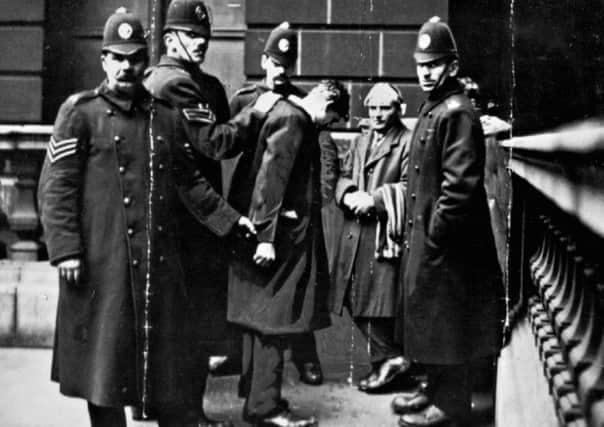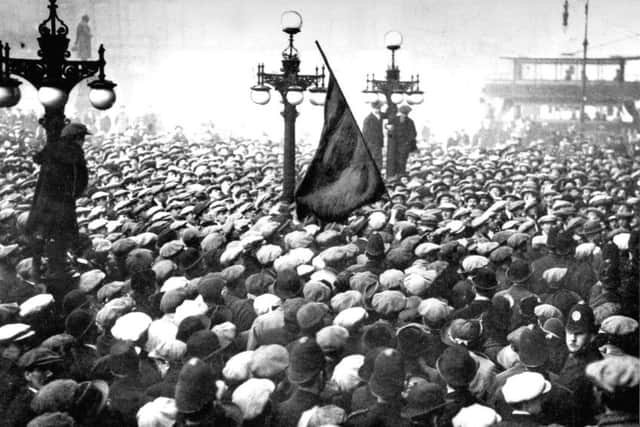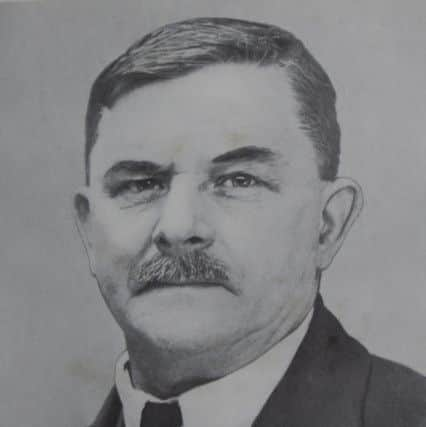The 6 shop stewards deported from Glasgow - to Edinburgh


The six were expelled, not to some far flung outpost, but just 47 miles east to Edinburgh where it was hoped their radical anti-war views and increasing influence would find less of an audience.
Davie Kirkwood, a shop steward at engineering firm Beardmore’s and Arthur McManus, of Weir’s of Cathcart, were two of the men taken from their beds and arrested at 3am on March 25, 1916 under the Defence of the Realm Act.
Advertisement
Hide AdThey had called illegal strikes after a commission set up by Lloyd George, then minister for munitions, refused to meet with the Clyde Workers Committee in Glasgow to hammer out details on the contentious issue of dilution, where unskilled labour was used to plug vast numbers of skilled vacancies left by the men who had gone to war.


The government was adamant dilution was essential to keep munitions flowing for the war. Workers thought unskilled workers could take skilled jobs through the back door.
The six shop stewards were court-martialled in Edinburgh and banished from the west, with Kirkwood separated from his family - bar a home visit to meet his new baby and a union-funded trip to the Crieff Hydro - for two years.
The episode is recounted by author Maggie Craig in her book, When The Clyde Ran Red, which is now being released in paperback and examines in rich detail the men and women in the West Coast of Scotland who fought for social change during the first half of the 20th Century.
Following the arrest of Kirkwood and company, the men were told they could “go to San Francisco or anywhere you like, as long as it is out of the Clyde Munitions area’.”


Craig said Kirkwood and the others had become increasingly influential on Clydeside with the authorities seeing them as a credible threat during wartime.
Advertisement
Hide AdShe added: “These men were viewed as dangerous. The authorities were committed to war so they had to try and keep these people quiet. This was an interesting period when ordinary people were started to get some power.
“You could see this around the Great Exhibition in 1911, the authorities were worried about the working classes gathering in large numbers. The were nervous what they might say.”
Advertisement
Hide AdKirkwood and company were escorted by police to Queen Street Station and given a 10-shilling note and a one-way ticket to the capital. They emerged from Waverley Station into a blizzard and the sight of some men trying to fix a broken down tram car.


Kirkwood later recalled how he felt he could have been in Russia, given the antiquated transport, the snow and ‘my emotions outraged at being lifted in the middle of the night without any charge preferred against me.”
Four of the men were to exchange their modest family homes for the vast Morningside pile of John S Clarke, originally from a circus family who later became a Labour MP and Glasgow councillor.
Far-left contemporary James Maxton, who led the Independent Labour Party from 1932 to 1946, was later arrested after calling for workers to strike until the deported shop stewards returned home.
He and another speaker, James MacDougall, spent the next four weeks in Glasgow’s Duke Street Prison on charges of “attempting to cause mutiny, sedition and disaffection and impending delaying and restricting the war effort’.


Kirkwood was later picked up by police after slipping off the Crieff Hydro for a rejuvenating stay, paid for by union men, and was imprisoned in Edinburgh Castle for two weeks before being released back into the city, Craig said.
Advertisement
Hide AdHe and his fellow shop stewards were to witness the first Zeppelin raid on Scotland, with Craig including Kirkwood’s account in her book.
Kirkwood recalled; “A great flash greeted me from the Castle, and then, above the roaring, I heard the most dreadful screeching and shouting. The inmates in the Morningside Asylum had started pandemonium. Another bomb exploded, but nearer Leith, then another, followed by a fire.
Advertisement
Hide Ad“When I was a young man, I had read Dante’s Inferno, which came out in parts at 4 and a half pence each. Here it was in reality.”
Kirkwood eventually returned to Glasgow for good and was arrested and batoned by police during the Blood Friday riot in George Square in January 31 1919. The unrest, spurred by the campaign for a 40-hour week, drew soldiers and tanks onto the streets.
Kirkwood was found not guilty of charges of incitement to riot and went on to be elected as the ILP MP for Dumbarton Burghs in 1922.
-When the Clyde Ran Red by Maggie Craig is published in paperback by Birlinn Books and available now